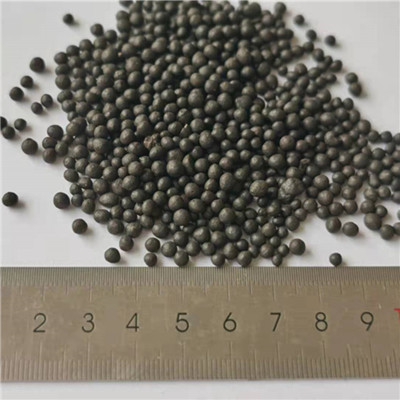What are the advantages of organic fertilizer?
Organic fertilizer plays an increasingly important role in agricultural production, what are its advantages?
On this issue, it seems that a lot of people have a half-understanding, but nobody has ever made it clear, so Let’s summarize its advantages as follows:
1. Improved fertilizer utilization.
According to the relevant data, it is confirmed that the utilization rate of chemical fertilizer in our actual production is only 30% to 45%.
Some of the lost fertilizers are decomposed and released into the atmosphere, some are lost with soil erosion, and some are fixed in the soil, which can not be directly absorbed and used by plants, but also causes adverse consequences such as soil salinization and consolidation.
Organic fertilizer can improve the utilization rate of chemical fertilizer through the following effects:
- Improve soil structure and increase soil water and fertilizer conservation capacity, to reduce nutrient loss.
- Organic fertilizer is the breeding place of beneficial microorganisms in the soil, which can dissolve phosphorus and potassium, and microbial organic fertilizer can increase the effective utilization rate of chemical fertilizer to more than 50%.
- The organic matter of organic fertilizer can also produce all kinds of phenols, vitamins, enzymes, auxins, and hormones in the process of ripening, which can promote the growth of crop roots and the absorption of nutrients.
- Reduce nutrient fixation and improve nutrient availability.
Organic fertilizer contains many organic acids, humic acids ,and other hydroxyl substances, which have a strong chelating ability and can chelate with many metal elements to create chelates, which can prevent soil from immobilization and failure of those nutrient elements.
For example:
1. with the mixed application of organic fertilizer and phosphorus fertilizer, organic acids and other chelates in organic fertilizer can chelate aluminum ions with strong activity in the soil, which can prevent the combination of aluminum and phosphorus to form closed-storage phosphorus which is difficult for crops to absorb, and greatly increase the content of available phosphorus in soil.
2. Humic acid can react with insoluble trace elements to form humic acid trace element complexes with good solubility and can be absorbed by crops, which is beneficial to the absorption of trace elements by roots and leaves.
2. Benefits for plant growth.
- Soil organic matter contains various nutrient elements needed for plant growth and development, and it is also an important source of phosphorus, sulfur, calcium, magnesium ,and trace elements in the soil.
- Promote the expansion and development of crops.
Humic acid in organic matter can enhance plant respiration, improve the permeability of cell wall and enhance the absorption of nutrients. at the identical time, vitamins and a few hormones in organic matter can promote plant growth and development. - Stimulate physiological metabolism.
Humic acid can promote the physiological activity of plants at a particular concentration.
Humic acid contains a range of active functional genes, which can enhance the activities of catalase and polyphenol oxidase in crops, stimulate physiological metabolism and promote growth and development.
For example, humic substance can promote seed germination earlier, and also the emergence rate is high, especially at low temperatures; it can stimulate the division and growth of root extreme meristem cells, make seedlings root quickly, take root more, increase root quantity and root elongation, and increase the ability of crops to absorb water and nutrients.
3. Benefits to the soil.
- Improve soil structure.
Humus in organic matter is that the main cementing agent of soil aggregates. On the one hand, it can reduce the viscosity of clayey soil, reduce tillage resistance and improve tillage quality; on the other hand, it can improve the aggregation of sand and improve its over-loose state. - Improve the ability of soil to retain water and fertilizer.
The organic colloid in soil organic matter has a strong adsorption capacity, which can not only improve the ability of soil to retain fertilizer and water, but also improve the buffer capacity of soil to acid and alkali. - Increase the soil temperature.
Organic matter is dark matter, generally brown to dark brown, with a strong heat absorption capacity, which can increase the ground temperature and improve the soil heat condition.
4. Benefits to beneficial microorganisms in the soil.
Soil organic matter supplies the energy and nutrients needed by soil microorganisms, which is beneficial to the activities of soil microorganisms.
The energy and nutrients needed for the life activities of soil microorganisms come directly and indirectly from soil organic matter, and humus can regulate the acid-base reaction of soil and promote the improvement of physical properties such as soil structure, which is beneficial to the activity of microorganisms.
5. Reduce the pollution of pesticides and heavy metals.
- Humus helps to eliminate pesticide residues and heavy metal pollution in soil, as well as the toxicity of Al, Mn ,and Fe in acidic media. In particular, fulvic acid can increase the solubility of some pesticides, such as DDT and triazobenzene, accelerate their leaching out of the soil and reduce pollution and toxicity.
- Humic acid can also complex with some metal ions. Because of the water solubility of the complex, toxic metal ions may be discharged from the soil with water, reducing the harm to crops and the pollution to the soil.
6. What kind of organic fertilizer should be purchased?
Nowadays, the production of organic fertilizer is generally made by composting animal manure. Although the cost of this kind of organic fertilizer is low, if the fermentation is not complete, it is easy to retain bacteria and pathogenic microorganisms. In the process of use, easy to cause crop diseases and lead to a reduction in production.
The organic fertilizer produced by YJAGRO uses pure plant fermentation mature raw materials, and especially added amino acids and humic acid, green, safe and efficient, farmers can use it with confidence.


